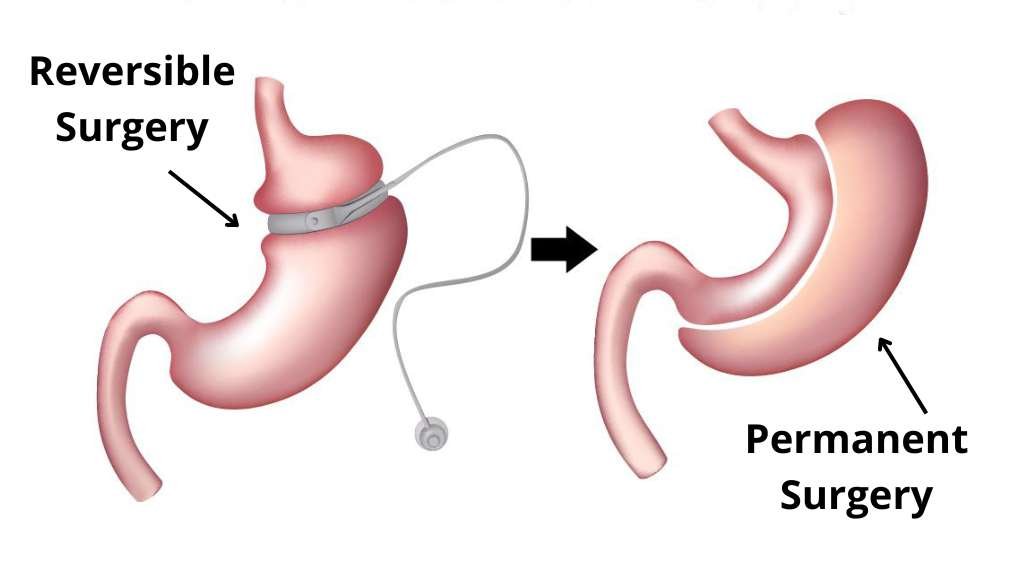Gastric Sleeve vs. Gastric Bypass: Selecting the Proper Weight Loss Surgical Procedure
When it comes to weight loss surgery, two of the most desired procedures are gastric sleeve and gastric bypass. These surgeries are both proven to be efficient in helping people achieve significant weight loss and improve health conditions related to obesity. While they share a common goal, they differ based on functionality, benefits, and possibly risk profile. This post will provide basic information about gastric sleeve and gastric bypass surgeries to help you make an informed decision about which procedure is more suitable for you.
Understanding Gastric Sleeve Surgery
Gastric sleeve surgery, which is also called sleeve gastrectomy, consists of cutting off a huge part of the stomach and creating the new, sleeve-shaped stomach pouch in place of it. This reduced the amount of food you can eat, causing a decrease in calorie intake and weight loss. Gastric sleeve routine is of a different type and requires no rearrangement in the intestines. It sustains the normal process of digestion.
Understanding Gastric Bypass Surgery
The gastric bypass, commonly called gastric bypass surgery, involves making a small stomach pouch and then re-routing the intestines to bypass a section of the stomach and small intestine. This cutting down of food intake leads to lower calorie intake and less absorption of nutrients. Gastric bypass surgery changes the way digestion takes place by avoiding some part of the stomach and small intestine.
Comparison of Gastric Sleeve vs. Gastric Bypass
Weight Loss Results
The chance for long-term considerable weight loss is both for the gastric sleeve and the gastric bypass surgeries , usually around 50% or even more of the excessive weight in the first year after the surgery. Although the two methods may lead to similar weight loss, gastric bypass surgery, which is more invasive, results in better weight loss success compared to gastric sleeve surgery.
More Effective in Solving Health Problems
The two methods have demonstrated sufficient efficiency in the treatment of conditions stemming from obesity, for instance, type 2 diabetes, high blood pressure, and sleep apnea. Nevertheless, the hunger hormone mechanism may get altered by gastric bypass surgery which influence some other conditions more as well as it has an impact on nutrient absorption.
Surgical Technique and Complexity
Gastric sleeve surgeries are considered less complex than gastric bypass surgeries because they do not involve relocating the intestines. Gastric bypass surgery, on the other hand, requires significant adjustments to the stomach and digestive tract, which can potentially increase the risk of complications.
Nutritional Considerations
Gastric bypass surgery has the consequence of the rerouting of the intestines. Subsequently, it may eventually result in the body’s failure to absorb nutrients properly. Patients are expected to follow the recommended diet and take nutritional supplements to prevent deficiencies. Generally, gastric sleeve surgery does not cause significant malabsorption, but patients still need to maintain a varied diet and take vitamin supplements as advised by their healthcare provider.
Common Concerns about Gastric Sleeve and Gastric Bypass
Risk of Complications
Gastric sleeve and gastric bypass operations can create problems after surgery like bleeding, infection, blood clots, leakage or digestive problems. These risks are just one of the things you should discuss with your healthcare provider and make sure to familiarize yourself with associated rare side effects of the procedures.
Long-Term Weight Maintenance
On the other hand, both methods may yield substantial weight reduction in the short term; however, the continuity of dieting and the adoption of healthy lifestyle patterns may influence the long-term outcome. Apart from this, the patients also need to live a lifestyle that they have lead during the weight loss program and continue taking efforts so as to prevent weight regain.
The effect on life caliber as a result
Weight loss surgery can significantly improve an individual’s quality of life by positively impacting their physical health, alleviating depression, and enhancing overall wellness. However, this entails considering potential lifestyle adjustments and addressing emotional and psychological aspects of weight loss.
Both gastric sleeve and gastric bypass surgeries effectively reduce weight and improve health complications associated with obesity. Doctors help patients choose between these procedures based on individual risk factors such as medical history, weight loss goals, and preferences. It’s crucial to discuss these options with a qualified healthcare professional in person. They can provide personalized guidance to help you make informed decisions tailored to your specific needs.
TurkeyObesity provides patients with weight loss solutions that are personalized and in alignment with their specific expectations. Set an appointment today as we are happy to provide you with a consultation and information about gastric sleeve and bypass surgeries to help you become successful at conquering your weight loss goals.
FAQs
1. What are the main differences between gastric sleeve and gastric bypass surgeries?
Gastric sleeve surgery involves removing a large portion of the stomach to create a smaller, sleeve-shaped stomach pouch. This limits the amount of food you can eat and helps in reducing calorie intake. In contrast, gastric bypass surgery creates a small stomach pouch and reroutes the intestines to bypass a section of the stomach and small intestine, altering both food intake and nutrient absorption.
2. Which surgery is more effective for weight loss?
Both gastric sleeve and gastric bypass surgeries are effective for weight loss, typically resulting in substantial reduction of excess weight within the first year. However, gastric bypass surgery is often associated with greater weight loss compared to gastric sleeve surgery due to its more extensive impact on digestion and metabolism.
3. What are the risks associated with each surgery?
Both surgeries carry risks such as bleeding, infection, blood clots, and digestive issues. Gastric bypass surgery, being more complex, may pose additional risks related to nutrient deficiencies and long-term health implications.
Both gastric sleeve and gastric bypass surgeries have been shown to improve or resolve conditions such as type 2 diabetes, hypertension, and sleep apnea. Gastric bypass surgery, with its hormonal changes and altered nutrient absorption, may offer additional benefits in managing metabolic conditions.
5. Can these surgeries be reversed or revised?
Gastric sleeve surgery is generally irreversible due to the permanent removal of a portion of the stomach. Gastric bypass surgery, although complex, can sometimes be revised or reversed in case of complications or inadequate weight loss, but it requires careful consideration and consultation with a healthcare provider.
6. How does each surgery impact lifestyle and dietary habits?
Both surgeries require lifelong dietary changes and adherence to specific nutritional guidelines. Patients must adopt healthy eating habits and regular physical activity to maintain weight loss and prevent complications.
7. What factors should I consider when choosing between gastric sleeve and gastric bypass surgery?
Factors such as your medical history, weight loss goals, lifestyle preferences, and potential risks should all be discussed with a qualified healthcare professional. They can help you determine which surgery is more suitable based on your individual needs and circumstances.
8. How long does it take to recover from gastric sleeve and gastric bypass surgeries?
Recovery times vary, but patients generally experience a period of adjustment and follow-up care to monitor weight loss, nutritional status, and overall health. Recovery from gastric sleeve surgery may be shorter compared to gastric bypass due to its less invasive nature.
9. Will insurance cover gastric sleeve or gastric bypass surgery?
Coverage varies depending on your insurance plan and medical necessity. It’s important to check with your insurance provider to understand coverage details, requirements, and any out-of-pocket costs associated with these surgeries.
10. Where can I get more information about gastric sleeve and gastric bypass surgeries?
For personalized guidance and detailed information about gastric sleeve and gastric bypass surgeries, schedule a consultation with a qualified bariatric surgeon or healthcare provider. They can provide comprehensive information, answer your questions, and help you make an informed decision about weight loss surgery.













